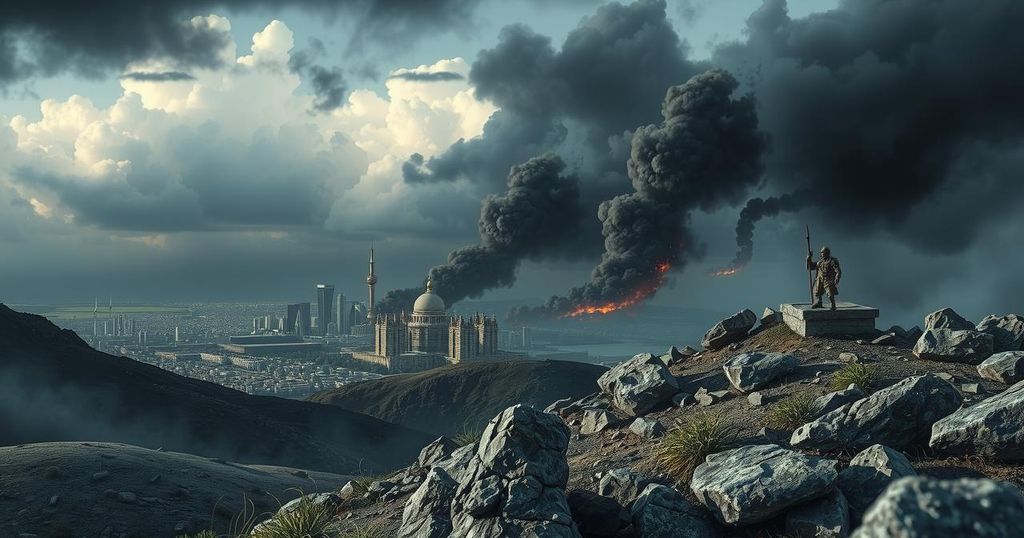Rwanda-backed rebels in the DRC have captured Goma and aim to advance to the capital, Kinshasa, over 1,500 km away. They face resistance from the Congolese army, which has mobilized forces to respond to the insurgency. The situation is exacerbated by the involvement of neighboring countries like Rwanda and Burundi, raising fears of a regional conflict. The humanitarian crisis deepens as civilian casualties rise amidst the ongoing violence.
Rebels in the Democratic Republic of Congo (DRC) have expressed their intent to advance towards Kinshasa, the nation’s capital, following their capture of Goma, a pivotal city in the eastern region. Despite their ambitions, these rebels face staunch resistance from the Congolese military and its allies. During a briefing in Goma, rebel leader Corneille Nangaa asserted their goal of seizing power in Kinshasa without disclosing the strategy for their journey, which exceeds 1,500 kilometers.
The DRC government remains resolute in its determination to maintain control, with President Felix Tshisekedi calling for extensive military mobilization in response to the insurgency. Defense Minister Guy Kabombo Muadiamvita emphasized their commitment to combat, stating, “We will stay here in Congo and fight. If we do not stay alive here, let’s stay dead here.” In their advance attempts, rebels have encountered military resistance from the Congolese forces and their support units.
Reports indicate that a force of 1,500 troops, comprising soldiers from Burundi and local militias, successfully defended Nyabibwe on the route to Bukavu against the advancing rebels. The already strained relations between Rwanda and Burundi further complicate the situation, raising concerns of an escalating regional conflict, as battles are reported between their armies on Congolese soil.
An African diplomat observed, “The Rwandan, Congolese, and Burundian armies are already clashing on the ground in eastern Congo.” The recent takeover of Goma has triggered alarm bells internationally, with the United Nations acknowledging the heightened risks involved. Historical context reveals that vast numbers of civilians suffered during earlier conflicts in the region, with millions perishing from secondary effects such as disease and malnutrition.
The M23 rebel group, primarily composed of ethnic Tutsis, originated as a faction separated from the Congolese army over a decade ago and remains one of numerous armed groups attempting to gain influence in the DRC. Amid continuous violence, there is a significant humanitarian crisis, with countless individuals sustaining injuries daily and millions facing dire circumstances.
The Democratic Republic of Congo has a turbulent history marked by conflict and humanitarian crises. The M23 group is among the many factions fighting for power within the country, stemming from long-standing ethnic tensions and instability. The capture of key cities like Goma by armed groups indicates a resurgence of violence reminiscent of earlier conflicts that led to widespread suffering and displacement. Efforts by the Congolese government to counter these rebel groups have met with significant challenges, often leading to regional complications involving neighboring countries such as Rwanda and Burundi.
The ongoing conflict in the DRC reflects deep-seated issues of power and ethnic strife, exacerbated by foreign involvement and resistance from the national military. The aspirations voiced by rebel leaders to seize control of the capital highlight the fragility of the political situation and the potential for wider regional conflict. As civilian suffering continues amidst this turmoil, the international community is urged to recognize and respond to the urgent humanitarian needs arising from the violence.
Original Source: news.sky.com






